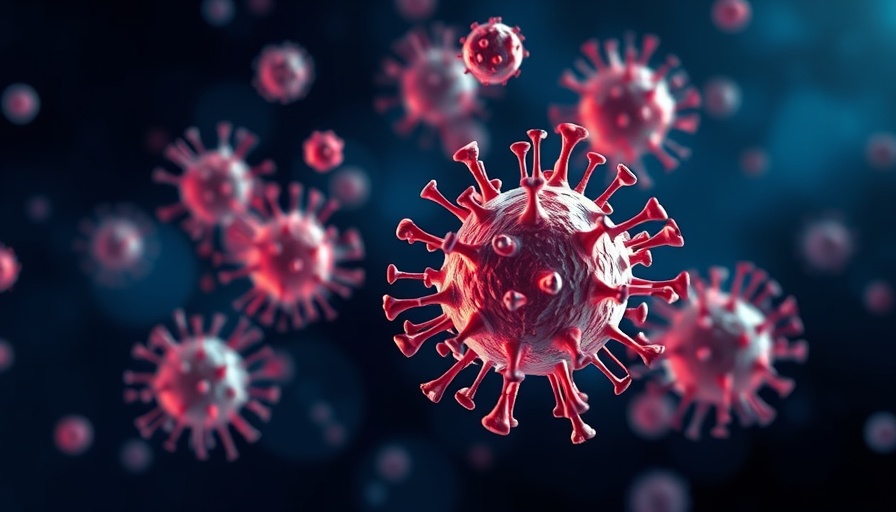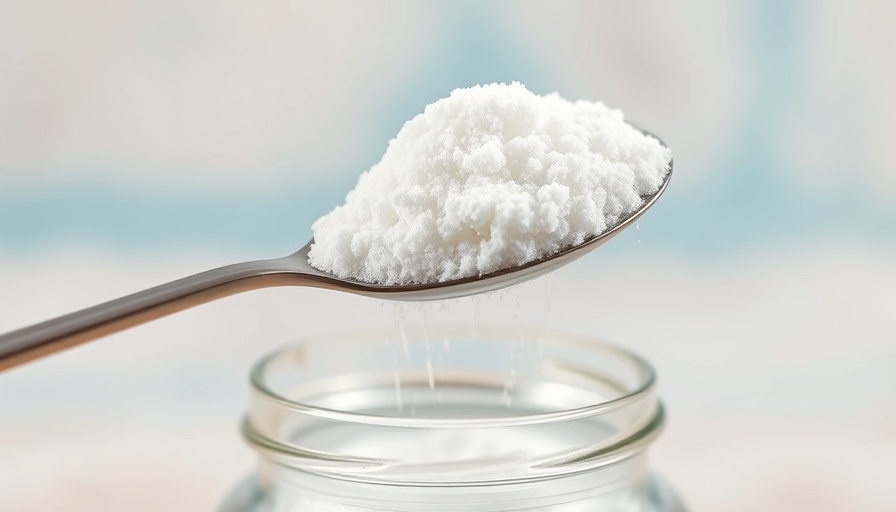
Understanding the Cancer-Fighting Power of Your Plate
Cancer is a daunting word that can evoke fear, especially when it impacts our loved ones or ourselves. While there is no definitive food that assures immunity from cancer, a diet rich in specific, nutrient-dense options can significantly enhance your chances against this disease. Research confirms that what you eat plays a crucial role in preventing cancer—by substantially influencing inflammation, supporting detoxification, and safeguarding our DNA.
The Role of Diet in Cancer Prevention
Cancer doesn't appear overnight. It takes time for cells to sustain damage that may lead to this grave condition. Factors such as chronic inflammation, oxidative stress, and toxin overload contribute to the gradual onset of cancer. Fortunately, our diet can serve as a powerful defense mechanism. Certain foods are rich in protective compounds that help neutralize harmful radicals, reduce inflammation, and empower our immune system.
The Evidence is In: What Studies Show
A prominent study published in *Nutrients* in 2019 revealed a compelling correlation: individuals consuming a high intake of fruits and vegetables exhibit significantly lower risks of various cancers, including breast, colorectal, lung, and stomach cancers. Additionally, research from the World Cancer Research Fund highlights that at least one-third of all cancers can be prevented through dietary modifications, a balanced lifestyle, and effective weight management.
Powerhouse Foods You Should Consider
This compiled list of cancer-fighting foods includes a mix of well-known and exotic options, showcasing the vast array of nutrients available:
- Broccoli Sprouts: Rich in sulforaphane, these little veggies boost detox enzymes and actively fight cancer cells.
- Turmeric: Containing curcumin, turmeric is celebrated for its ability to block tumor growth and reduce inflammation.
- Berries: Whether strawberries or blueberries, these fruits are high in ellagic acid, known for inhibiting tumor cell proliferation.
- Reishi and Chaga Mushrooms: Packed with beta-glucans, these fungi enhance your body’s immune response against tumors.
- Soursop: This tropical fruit is loaded with acetogenins, which are toxic to cancer cells.
The Secret to Incorporating These Foods into Your Diet
You might wonder how to make these foods a part of your daily routine. Here are some practical tips to consider:
- Smoothies: Blend your favorite berries with spinach or kale for a delicious and healthful smoothie.
- Soups and Stews: Add turmeric and mushrooms to your soups for an extra health boost.
- snacking: Snack on raw broccoli sprouts or berries instead of processed snacks laden with high-fructose corn syrup.
Counterarguments Worth Considering
Amidst this wealth of information, it’s crucial to be aware of the counterarguments. For example, some experts suggest that while diet plays a significant role, it is not the only factor influencing cancer risk. Genetics, environment, and lifestyle habits also contribute heavily to an individual’s cancer susceptibility. Balancing nutrition with these factors is vital for a holistic approach to health.
Future Predictions and Trends: Where Are We Headed?
Personal diets continue to evolve as new research unfolds. Going forward, expect to see a greater emphasis on plant-based diets in cancer prevention discussions. Additionally, as more data arises about the effects of specific compounds—like those found in high-fructose corn syrup—it may reshape dietary recommendations and influence food labeling.
Actionable Insights: Empower Your Healthcare Choices
The path to cancer prevention is paved with knowledge and action. Start making conscious food choices that nurture your body. Incorporate cancer-fighting foods, minimize processed sugars like high-fructose corn syrup, and prioritize whole, nutrient-rich options. Every plate can be a statement in your fight against cancer.
As you take these steps, share what you learn with your community. Empower those around you to make informed choices about their diet and health, ensuring that the impact of your knowledge extends beyond just yourself.
 Add Row
Add Row  Add
Add 




 Add Row
Add Row  Add
Add 


Write A Comment